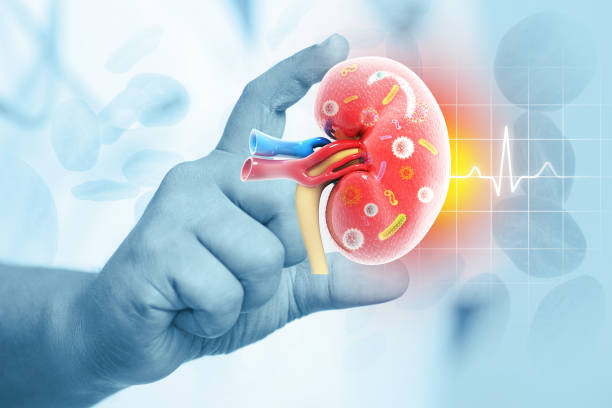03 Feb 2026
Rhinoplasty Revision Surgery in Mohali: Cost When Your First Nose Job Fails


Dr. Raka Kaushal
22 May 2025
Call +91 80788 80788 to request an appointment.
Chronic kidney failure, also known as chronic kidney disease (CKD), is a progressive condition that affects millions of individuals globally. It occurs when the kidneys lose their ability to filter waste and excess fluids from the blood, which can lead to serious health complications. In Punjab, the prevalence of chronic kidney disease is a growing concern, making it essential to understand effective nutritional management strategies for patients suffering from this condition.
Nutritional management plays a pivotal role in the health and well-being of patients with CKD. An appropriate diet can help slow the disease's progression, manage symptoms, and improve overall patient quality of life. This blog will discuss expert guidelines on nutritional management in chronic kidney failure, emphasizing tailored dietary strategies relevant to patients and families in Punjab.
Chronic kidney failure is characterized by a gradual decline in kidney function over time. The causes can vary widely, including diabetes, hypertension, glomerulonephritis, and polycystic kidney disease. Common symptoms include fatigue, swelling, high blood pressure, and changes in urine output. As kidney function declines, waste products can accumulate in the bloodstream, leading to a condition called uremia, which can cause severe health complications.
Statistics indicate that CKD affects approximately 15% of adults in India, with Punjab showing an alarming increase in cases due to lifestyle choices and environmental factors. As such, understanding dietary guidelines tailored for kidney patients is critical for managing their health effectively.
Nutrition management in chronic kidney failure is essential for several reasons:
When developing a dietary plan for chronic kidney failure, it's important to focus on individualized nutritional needs depending on the stage of CKD and other health conditions. Here are essential dietary guidelines experts recommend:
The dietary requirements vary significantly depending on the CKD stage. Here’s a breakdown of nutritional needs based on different stages:
| CKD Stage | Nutritional Focus | Dietary Changes |
|---|---|---|
| 1-2 | Maintain normal diet | Monitor protein and sodium intake |
| 3 | Restrict potassium and phosphorus | Consider protein restriction |
| 4-5 | Manage fluid balance and electrolytes | Significant protein restriction and fluid intake limit |
Working with a renal dietitian can significantly enhance kidney health management. A renal dietitian specializes in dietary strategies tailored for kidney disease patients. Here’s how they can help:
Implementing a kidney-friendly diet can be enjoyable with the right recipes. Here are a few examples of nutritious meals suitable for CKD patients:
Managing chronic kidney disease can be overwhelming, both physically and emotionally. Therefore, it is crucial to address psychosocial aspects of living with CKD:
Effective nutritional management is a cornerstone in the treatment of chronic kidney failure. By adhering to expert guidelines and working closely with renal dietitians, patients can improve their health outcomes and quality of life. Understanding dietary requirements and making informed choices can significantly slow disease progression and manage symptoms effectively.
At Livasa Hospitals, we emphasize the importance of tailored nutrition plans for individuals diagnosed with chronic kidney disease. If you or a loved one is seeking nutritional guidance or expert nephrology support in Punjab, our team of nephrology specialists is here to help. Don't hesitate to book an appointment or contact us at +91 80788 80788.
Rhinoplasty Revision Surgery in Mohali: Cost When Your First Nose Job Fails
Plastic Surgery After Massive Weight Loss: Body Contouring Packages in Mohali
ENT + Cosmetic in Mohali: Septoplasty for Breathing with Cosmetic Rhinoplasty Offers
Livasa Healthcare Group Corporate Office,Phase-8, Industrial Area, Sector 73, Sahibzada Ajit Singh Nagar, Punjab 160071
| Mohali | +91-99888 23456 |
| Amritsar | +91-99887 49494 |
| Hoshiarpur | +91-99883 35353 |
| Nawanshahr | +91-75081 82337 |
| Khanna | +91-98888 05394 |